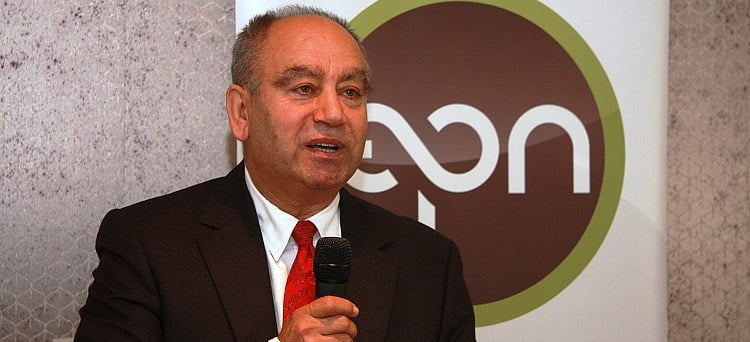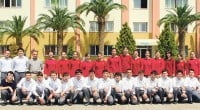The Erdoğan-Gülen encounter and democracy

Date posted: April 2, 2014
ALİ YURTTAGÜL
Some realities on the national agenda right now make Erdoğan’s Gülen rhetoric much clearer. The first is the “coup-supporting” or “parallel state” role clearly cut out by Erdoğan for the Gülen movement. He had the aim of defending his claims post Dec. 17 that “there was no corruption, just a coup attempt.” Not only are these assertions not believable, they are not even worth debating. But this is a problem which will soon be illuminated before the court system. The second, and more important reality, involves the deepening cracks within the ranks of the Justice and Development Party (AKP) when it comes to the tension between the Gülen movement and Erdoğan. Even though Erdoğan’s insult-filled rhetoric of late has certainly contributed to the deepening of these cracks, the origin of the first cracks goes back to before Dec. 17, way back to 2011. We do believe that the reason for these cracks is not only interesting, but worthy of examination.
What we have witnessed — for the first time in Turkish history, it should be added — is a social movement that was “ruling partner” with the AKP actually withdraw its support from the AKP and Erdoğan. It is a social movement that represents the conservative Anatolian bourgeoisie, and has become quite visible on the political spectrum. This breaking point has brought to the political stage something that transcends the classic secular-conservative categorizations so familiar in Turkey. In this, the current situation has the potential to be a new democratic people’s movement, one that encompasses views that run from the left to the right, and which can stand to question an authoritarian state. Which is why, from the general perspective of Turkish democracy, the Gülen-Erdoğan clash actually presents opportunity.
And now, let’s take a moment to think briefly about Europe, which went through its own struggles for democracy a couple of centuries before Turkey. And in this light, let us scrutinize more closely Erdoğan’s authoritarian tendencies and his struggles with the Turkish Islamic scholar who inspired the movement, Fethullah Gülen.
‘Eastern despotism’
Though of course despotism is not unique to Turkey, what one can see at work today in Turkey carries some of the deep traces of “Eastern despotism.” One needs to read recent Ottoman and Republic-era history, “the Turkish people’s struggles for democracy and to overcome despotism.” Inherent in the Erdoğan-Gülen clash is a clash between despotism and democracy, or the state against the people. The factor that has made these most recent elections so difficult and even confusing for many people in Turkey lies in the widespread perception of the main opposition Republican People’s Party (CHP) and the Gülen civil society movement as being, respectively, the state and the “parallel state.” Just as for many years the CHP was not seen as an opposition party, but as an organ of the state, the Gülen movement was seen as a partner in the AKP leadership. Which is why it took some time for the Gülen movement to become aware of the process that wound up with the “state-ification” of Erdoğan and his AKP.
In fact, though, Erdoğan embracing the spirit of Feb. 28 in his targeting of the Gülen preparatory schools was really not all that surprising. In Turkey, the state can never stand “power sources” that develop outside of itself; it sees these outer “power sources” as a kind of threat. Which is why it really was not too surprising to see the AKP’s attempts to weaken the Gülen movement’s filling of the vacuum in the Turkish state educational system.
Democracy in Europe came about because of bloody struggles carried out by society against despotism. When we look to compare a bit more closely, Turkey’s own struggle for democracy — though it comes at least a century later — resembles neither that of England, nor of France, but rather more the disaster-filled German experience. One can see from many angles today in Turkey the traces of something reminiscent of the social matters that caused so much pain during the industrialization period in Germany, also known as “Bismarck’s Germany.”
While the German people, in facing these social problems, lent their support to despotism in the shape of Bismarck, they made their greatest historical error in supporting Adolf Hitler. When one examines more closely the support lent by the Anatolian business world to Erdoğan’s policies, and to the continuing support of this politician in general, one can see parallel traces of “Bismarck’s Germany” in his policies. Of course, one cannot ignore some stark differences in terms of the era in which we live, and the geography as well.
Otto von Bismarck was face-to-face with an increasingly powerful labor syndicate and socialist movement in Germany of the 1880s. The German bourgeoisie were quite happy with the empire and Bismarck not only because of his occupation of Paris — showing everyone who the most influential power in Europe really was — but also because in shattering the Paris Commune, he had made a strong showing against the flourishing workers’ movements spreading in those days. In those years, Germany was moving quickly toward becoming an industrialized society, though it was still sorely lacking in social policies. Not only were philosophers like Karl Marx and Friedrich Engels — the names behind a growing social movement — becoming more and more visible, but Germany was also facing an increasingly powerful movement that was gathering financial resources through state workers’ cooperatives, labor syndicates and health insurance.
It was unacceptable and dangerous for Bismarck’s authoritarian state for these cadres to possess considerable financial resources, and at the same time enjoy organic ties to the socialist movement that was already outside the Prussian Empire’s state controls. The “Sozialisten Gesetze” or “Socialist Laws” in German history were actually a coup aimed at the labor syndicate movement; what this essentially meant was the state takeover of social security funds saved up by the workers of the state. Even today, the official German read on history interprets Bismarck as having been the architect of social reforms.
In the meantime, in Turkey, the bourgeois revolution — which comes during the age of the Internet, and is based on the legacy of the Ottomans — is not only a struggle for democracy, but also intersects with the “national issue” imposed by the Kurds, which makes its general political atmosphere all the less clear. It is a scenario in which people don’t have a very easy time taking sides. And since the problem also overlaps with issues like “freedom of belief” and “secularity” — and even environmental movements — one almost has to be a political expert in order to clarify the various sides at work here. Just as it is difficult to understand where on the spectrum names like Fethullah Gülen, Recep Tayyip Erdoğan, Kemal Kılıçdaroğlu and Devlet Bahçeli — or organizations such as the Turkish Industrialists and Businessmen’s Association (TÜSİAD), the Independent Industrialists and Businessmen’s Association (MÜSİAD) or the Turkish Confederation of Businessmen and Industrialists (TUSKON) — fall, it was difficult to avoid there being election problems for Kurds, Alevis, the poorer districts and devout Muslims. While the Gülen movement stayed on the side of the youth and the environmentalists protesting against Erdoğan during the Gezi uprisings, it was for this reason that there was no coincidence the Kurds remained distant from this all. By the same token, as the “Anti-Capitalist Muslims” prayed at Gezi, the “Marxist” Kurdistan Workers’ Party (PKK) members also stayed far away.
Gülen movement stands on side of society, democracy
But when we focus on the social quandaries of the struggle against oppressive state actions since Ottoman times, it becomes clear that the fact that the Gülen movement chose sides against Erdoğan during Gezi not only made sense, but was quite natural. And to wit, while Erdoğan today represents visible remains of the “despotic Eastern state,” the Gülen movement has chosen to stand on the side of society and democracy. It is obliged, in fact, to do so, as a civil society movement. In addition, it is equally natural that such well known democrats as Cengiz Çandar and Şahin Alpay would stay on the side of the Gülen movement through the course of the clashes between Erdoğan and Gülen.
Not only its history, but also its politics and its geographical position help make Turkey a particularly complex country, one that cannot be explained — or understood — using simplistic examples. Despite this, the clashes between Erdoğan and Gülen that are defining the national political agenda today, are, no matter which angle you look at them from, actually providing a great opportunity to Turkey. The opportunity is inherent in the fact that today, we see for the first time a social democratic front composed of both secular and devout Muslims, fighting against a ruling party open to despotism, that has shaped itself around the Muslim National View movement. I suppose it is precisely this historical and social reality that must be driving Erdoğan crazy. For a good 10 years, the CHP, the military and the classic secular İstanbul bourgeoisie gave Erdoğan the facility to be both the elected government and the opposition at the same time, thus preventing clear sides in the whole state-society relationship. And to wit, the AKP was the ruling government, but not the “power,” while the CHP might have been the opposition, but thought of itself as “part of the power structure.”
Which is why it was that just as Erdoğan was able to stay in the same ranks as the Gülen movement, he was also able to use this movement as a kind of “scapegoat,” creating the image that he was distanced from state policies. All the data on hand now shows us that it was because the new Constitution project was given up on that the bridges were burned between Erdoğan and the Gülen movement. And so it is that we observe that the Gülen movement — which has become truly aware of the “state-ist” Erdoğan and his absolute power — and the elected government are now on different sides today.
Looking a bit more closely at some of the more visible problems between the Gülen movement and Erdoğan — matters like preparatory schools, the 4+4+4 education system, the Supreme Board of Judges and Prosecutors (HSYK), the Internet laws and the Gezi protests — is enough to allow one to see that the real problem is one of a clash between a democratic society and a despotic state. Just as Emperor Bismarck once state-ified social security because it was becoming too strong of a source of power, Prime Minister Erdoğan wants to do the same thing with the preparatory schools.
In Turkey, where military coups have opened great wounds through the years, the structural body of the state is still not settled in place. The executive, legislative and judicial branches are still seen as tools for political power. In these days when the country is so badly shaken by corruption investigations, and when freedom of thought and the press have been so badly damaged on so many fronts, the relationship — or contradictions, perhaps — between the state and the society are of vital importance. If Turkey is successfully able to transcend the many contradictions inherent in these relations, it might be able to write a new history for itself, but it might also provide the yeast for new disasters in the Middle East, as Bismarck once did in his region, laying the groundwork for two World Wars.
Turkey, like Egypt, lies on lands in the Middle East where history is being made. Looking at Turkey from Brussels, we watch Erdoğan defend his power with authoritarian state tools and face off against Gezi, the Gülen movement, and the İstanbul bourgeoisie; we are increasingly aware of the existence of this struggle for democracy. One needs not be a soothsayer to predict that İstanbul, which takes the side of the state of law, freedoms of the press and of thoughts and integrating with the world, will win against those leading in Ankara right now. This victory may not have occurred on March 30 itself, but it won’t be too much later either.
*Ali Yurttagül is a political adviser for the Greens in the European Parliament.
Source: Todays Zaman , April 2, 2014
Tags: Defamation of Hizmet | Democracy | Hizmet (Gulen) movement | Hizmet-inspired schools | Turkey |
























